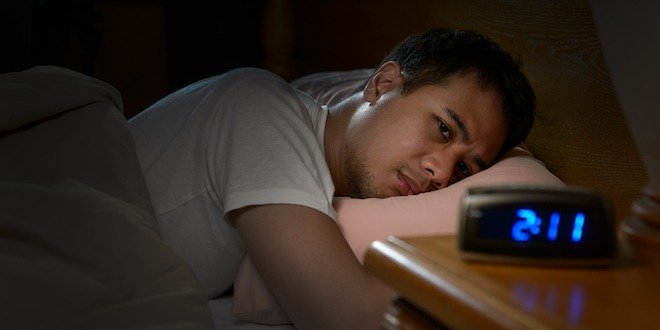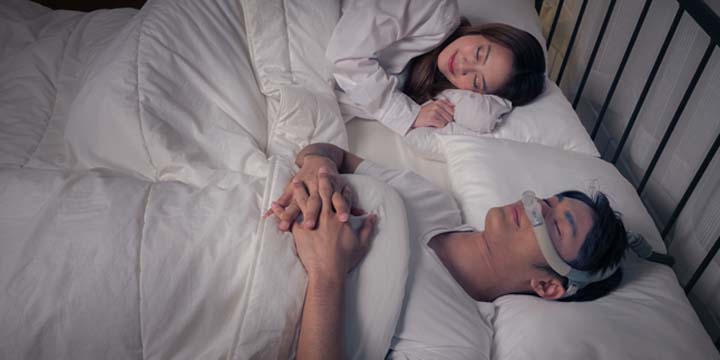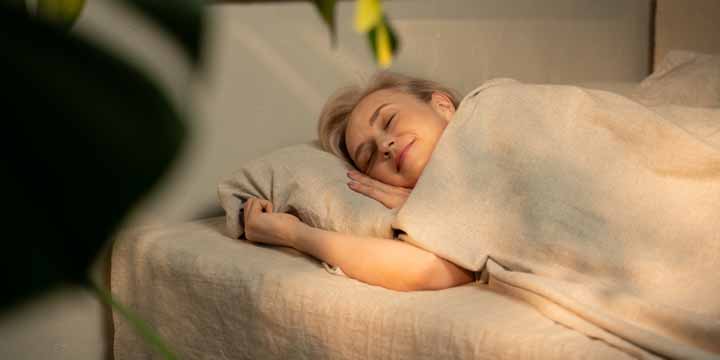
If you suffer from diabetes and insomnia, there are a few things that might be causing it. Diabetes and sleep are very closely linked: having diabetes can result in sleep disruption, and not sleeping well is actually a risk factor for diabetes.
Diabetes can affect your sleep
A number of issues associated with diabetes can affect your sleep. These include:
- Hyperglycemia: high blood sugars can cause thirst, frequent urination, headaches and hunger. All of these things can cause you to wake up frequently in the night, thus disrupting your sleep.
- Hypoglycemia: low blood sugars can cause hunger, headache and night sweats. These symptoms can also cause you to wake up frequently in the night, reducing your hours of sound sleep.
- Sleep apnea: a common sleep disorder in people with type 2 diabetes, sleep apnea happens when the upper airway or throat region narrows. This narrowing causes oxygen levels to decrease, and eventually the brain triggers a response to wake the person up – at least enough to take a full breath and reopen the airway. That’s why people with sleep apnea stop and start breathing repeatedly during the night. Signs of sleep apnea include drowsiness during the day, and night-time snoring. Click here for more information about sleep apnea.
- Pain from neuropathy: nerve damage in the legs and feet (also known as “peripheral neuropathy”) can cause tingling, numbness, burning and pain, which can making falling asleep and staying asleep more difficult.
- Restless leg syndrome (RLS): a condition similar to neuropathy, RLS can also be caused by high blood sugar levels. People with this condition have an intense and uncontrollable urge to move their legs; they also feel tingling, pulling or pain, especially at bedtime.
Sleep issues can affect your risk of diabetes
There is a link between type 2 diabetes and lack of sleep: if a person regularly gets too little sleep, less insulin gets released after eating. Meanwhile, the body secretes more stress hormones (such as cortisol), which makes it harder for insulin to do its job effectively. The net effect is that too much glucose stays in the bloodstream, which can increase the risk of type 2 diabetes.
Tips to improve your sleep
Check out these 8 handy tips to help you fall and stay asleep, so that you get a good night’s rest:
- Sleep needs vary – some people need more, others need less. Aim for 7 to 8 hours of sleep each night. (School-aged children should aim for 9 to 11 hours of sleep per night.) Click here for more information about sleep.
- Go to bed at the same time every night and wake up the same time each morning. Establish a rhythm that works for you and stick to it!
- Make your bedroom a sleeping sanctuary: a quiet, dark and cool environment can help promote sound slumber.
- If you crave a nap, make sure you take one earlier in the day (before 3:00 or 4:00 pm) and keep it short (about half an hour). Longer, later naps can interrupt your natural sleep rhythm.
- Eliminate screen time before bed: stop using your smartphone or other screen devices an hour or two before bedtime to give your brain a rest.
- Avoid caffeine for 4 to 6 hours before bedtime.
- A smaller evening meal is digested more quickly than a larger one – and helps improve your sleep – so eat lightly at suppertime.
- Balance fluid intake: drink enough fluid at night to keep you from waking up thirsty, but not so much and so close to bedtime that you’ll need multiple trips to the bathroom during the night.
Is it time to see your healthcare team?
If you are having sleep difficulties – whether it’s trouble falling or staying asleep, tiredness during the day, difficulty breathing while asleep, or pain in your legs – visit your healthcare team to discuss it.
You may be referred to a sleep specialist, who will do a study called a polysomnogram. This study measures your brain waves, the oxygen level in your blood, heart rate and breathing, as well as eye and leg movements.
The results of a sleep study can help your doctor make an accurate diagnosis and prescribe an effective and safe treatment to help you get a good night’s sleep.



